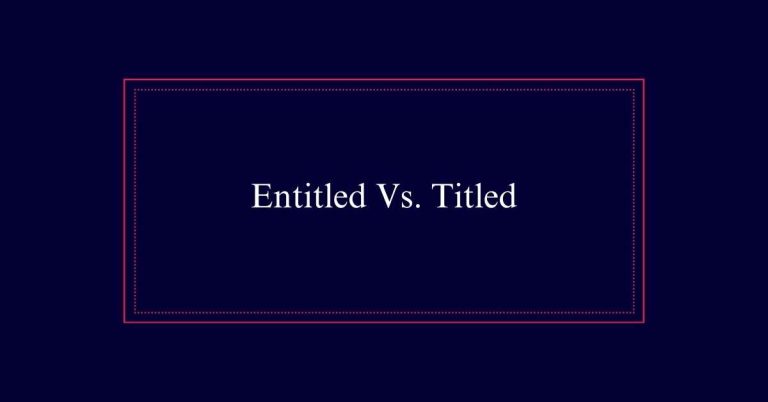Acknowledgement or Acknowledgment?
The correct spelling depends on the variant of English being used. In American English, ‘acknowledgment’ is preferred, while ‘acknowledgement’ is favored in British English. Both forms are globally accepted, but using the appropriate version according to your audience is important for effective communication.
In the U.S. and Canada, ‘acknowledgment’ is commonly used, aligning with trends to streamline language. Meanwhile, British English, as well as regions like Australia and New Zealand, typically use ‘acknowledgement.’
Spelling Variations
The spelling of the word ‘acknowledgment’ varies between American and British English. In American English, the word is typically spelled without the ‘e’, resulting in ‘acknowledgment’. Conversely, British English retains the ‘e’, spelling it as ‘acknowledgement’.
This difference aligns with the broader tendency of British English to include extra letters in certain words, such as ‘colour’ and ‘favour’. Both spellings are widely recognized and accepted globally. The choice of spelling often depends on regional preferences and the specific audience.
While ‘acknowledgment’ is more common in the U.S. and Canada, ‘acknowledgement’ is frequently used in other English-speaking countries.
U.S. and Canadian Usage
In the U.S. and Canada, the preferred spelling of the word is ‘acknowledgment’ without the ‘e’. This variation aligns with American and Canadian English conventions, which often simplify spellings by omitting unnecessary letters.
Thus, in formal writing, academic papers, and professional documents within these regions, using ‘acknowledgment’ is standard practice.
The choice reflects a broader trend in North American English to streamline and modernize language usage. While both spellings are technically correct and understood, ‘acknowledgment’ is more prevalent in American and Canadian contexts.
This spelling is seen in legal documents, business communications, and everyday writing. Adopting this form ensures clarity and consistency, aligning with regional norms and reader expectations.
International Preferences
Therefore, many countries outside North America prefer the spelling ‘acknowledgement’ with the extra ‘e’. This version is commonly used in places like the United Kingdom, Australia, and New Zealand. The additional ‘e’ aligns with British English conventions, which often include extra letters in certain words.
This spelling is seen in formal documents, academic writing, and everyday usage in these regions. It is important for writers to be aware of their audience and regional preferences. Using the correct spelling can enhance clarity and professionalism. Both ‘acknowledgment’ and ‘acknowledgement’ are correct, but understanding the preferred usage can improve communication and avoid misunderstandings.
British English Norms
British English norms generally favor the inclusion of extra letters in words, such as the ‘e’ in ‘acknowledgement.’ This preference aligns with the broader tendency in British English to maintain traditional spellings.
Words like ‘judgement’ and ‘colour’ exemplify this norm, reflecting historical roots and etymology. The inclusion of the ‘e’ in ‘acknowledgement’ is not merely about tradition; it also aligns with phonetic consistency, aiding in pronunciation. This spelling is widely accepted in the UK, Australia, and other Commonwealth countries.
While both ‘acknowledgment’ and ‘acknowledgement’ are correct, British English users typically prefer the latter. This consistency in spelling reinforces the linguistic identity distinct from American English conventions.

Common Usages
Acknowledgment serves various purposes across different contexts, reflecting its versatility and importance.
In everyday life, acknowledgment can mean admitting a mistake or recognizing an issue, such as a public health concern. It is also used to show appreciation, such as giving an award for outstanding performance or expressing gratitude in speeches.
In professional settings, acknowledgment often involves confirming receipt of documents or messages. This can range from RSVPs to formal acknowledgment letters in business and legal contexts.
Additionally, acknowledgment can denote the recognition of valid points in a discussion or debate. These varied uses highlight the significance of acknowledgment in facilitating communication, showing respect, and maintaining professional and personal relationships.
Examples in Contexts
In various contexts, acknowledgment can manifest as an admission of error, a token of appreciation, or a formal confirmation. These instances highlight its versatility and importance in communication. Below are examples illustrating different contexts where acknowledgment is used:
| Context | Example |
|---|---|
| Admission of Error | A referee admitting a mistake in a sports game. |
| Public Recognition | Acknowledgment of a public warning by financial analysts. |
| Token of Appreciation | An award for leadership as a token of appreciation. |
| Expression of Gratitude | A teacher receiving an apple as a symbol of acknowledgment. |
As Confirmation
As confirmation, acknowledgment serves as a vital recognition that a document or message has been received and understood. This practice is common in both personal and professional settings.
For instance, when you send an email, you often receive an acknowledgment to confirm it was delivered. This helps to prevent misunderstandings. Acknowledgment is also essential in business transactions. It guarantees that all parties are aware of the receipt of important documents.
In social contexts, RSVPs are a form of acknowledgment that confirms attendance. This courteous gesture promotes goodwill and smooth communication.
Legal and Computing
Within legal and computing contexts, acknowledgment plays a pivotal role in validating transactions and communications. In the legal field, an acknowledgment is a formal declaration before an authorized official, such as a notary, confirming the authenticity of a document. This process safeguards that the signatory is who they claim to be and that they signed the document willingly.
This validation is essential for maintaining reliable and secure communications in digital environments.
In computing, acknowledgment is vital for data integrity. It confirms the receipt of messages or data packets, guaranteeing that information is correctly transferred between systems. For instance, in network communications, acknowledgment packets are sent to confirm that data has been received without errors.







